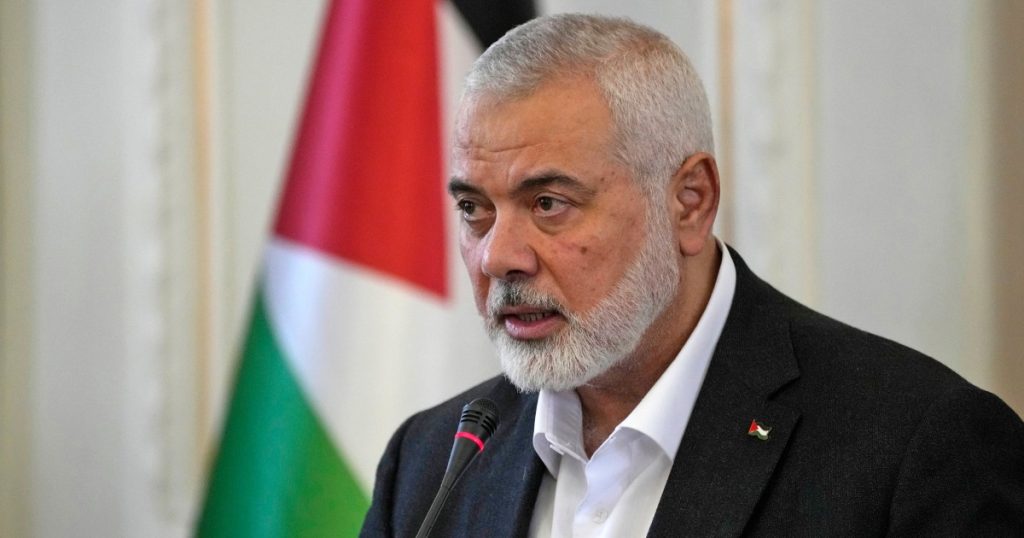Hamas’ political chief, Ismail Haniyeh, was killed in an Israeli strike on his home in Tehran, according to a statement from the group. Haniyeh had attended the inauguration ceremony for Iranian President Masoud Pezeshkian before the attack took place. This comes after the deaths of three of Haniyeh’s sons in an airstrike on the Gaza Strip in April. The hunt for Hamas’ leadership has been ongoing for months, with Israeli officials vowing to kill Haniyeh.
Haniyeh’s death was also reported by Iranian state news agency IRNA, although no further details were provided. The chief of Israel’s Mossad intelligence agency had previously vowed to kill Haniyeh after Hamas’ terrorist attacks on Oct. 7, which resulted in the deaths of 1,200 people and the kidnappings of 250. Haniyeh had previously stated that Hamas would not submit to Israeli pressure. The strike on Haniyeh came after the Israeli military targeted and killed Hezbollah leader Fuad Shukr in a strike on a suburb in southern Beirut, known to be the home of Hezbollah’s headquarters.
Following Haniyeh’s death, a Hamas official named Sami Abu Zuhri stated on Hamas-run Al Aqsa TV that the group is “waging an open war to liberate Jerusalem and are ready to pay various prices.” This indicates that Hamas is prepared to escalate their conflict with Israel in response to Haniyeh’s killing. The ongoing violence between Hamas and Israel has resulted in thousands of Palestinian deaths and significant destruction in Gaza. Haniyeh’s death is likely to further inflame tensions between the two sides as Hamas seeks to retaliate.
Israeli officials did not comment on the reports of Haniyeh’s death, but it is clear that his killing represents a significant blow to the Hamas leadership. With Haniyeh’s sons also having been killed in previous strikes, the group is now faced with a leadership vacuum that could impact their ability to carry out future attacks. The deaths of key figures in Hamas and Hezbollah indicate that Israel is stepping up its efforts to target individuals responsible for attacks on Israeli territory.
The deaths of Haniyeh and Shukr in Israeli strikes highlight the continuing cycle of violence and retaliation between Israel and militant groups in the region. The ongoing conflict has resulted in immense human suffering and destruction on both sides. The willingness of Hamas to continue their fight for Jerusalem despite the losses they have suffered demonstrates their strong commitment to their cause. As the situation continues to escalate, there is a growing concern about the potential for further violence and loss of life in the region.
Overall, the death of Ismail Haniyeh in an Israeli strike represents a significant development in the ongoing conflict between Hamas and Israel. His killing is likely to have far-reaching implications for the leadership and operations of Hamas. The ongoing violence and tensions between the two sides show no signs of abating, as both Hamas and Israel remain committed to their respective goals. The international community continues to monitor the situation closely, with concerns about the potential for further escalation and loss of life in the region.


